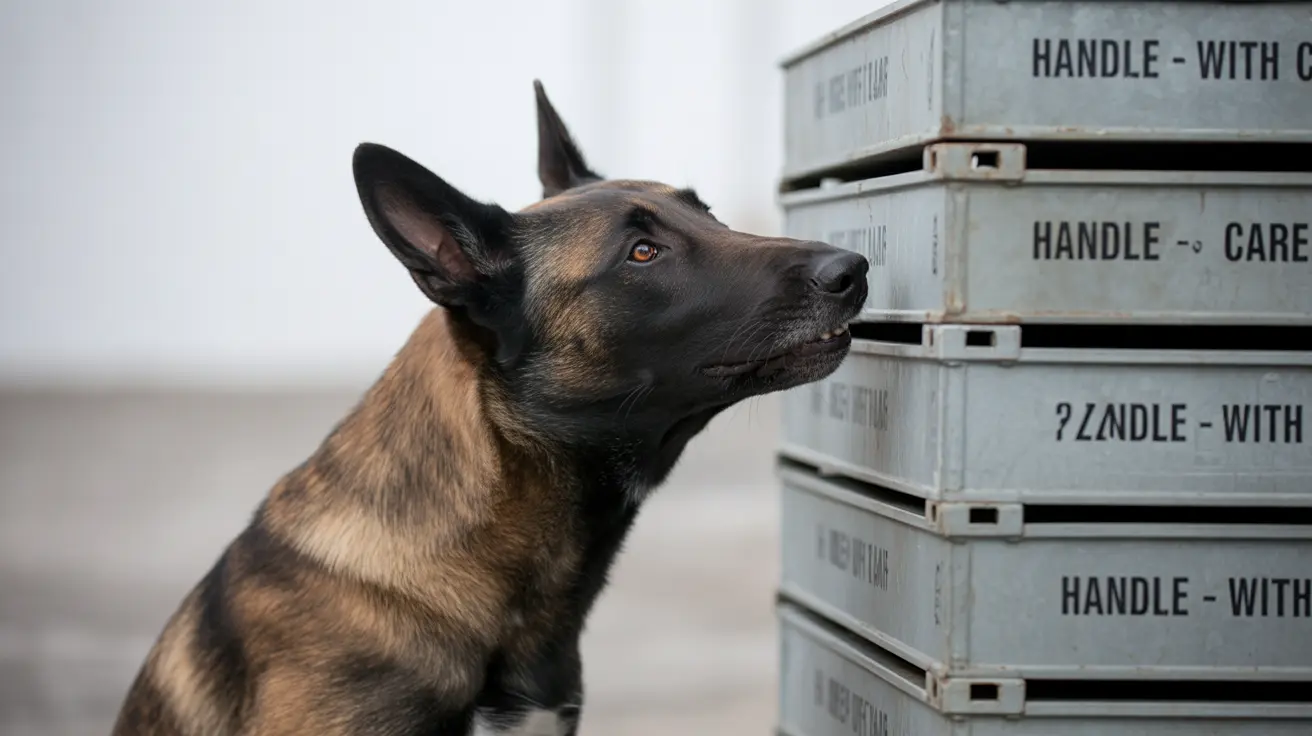Dogs are renowned for their incredible sense of smell, with olfactory capabilities that far surpass human abilities. While we know dogs can detect various substances, from drugs to diseases, many pet owners wonder about their ability to identify potentially dangerous substances like poison. Let's explore the fascinating world of canine scent detection and understand what dogs can and cannot smell when it comes to toxic substances.
With approximately 220 million odor receptors in their noses (compared to our mere 5-6 million), dogs possess a sense of smell that's 10,000 to 100,000 times more powerful than humans. This remarkable ability makes them valuable partners in various detection tasks, but their capacity to smell poison specifically comes with important nuances and limitations.
The Science Behind Dogs' Scent Detection Abilities
Dogs' extraordinary olfactory system allows them to detect scents at concentrations as low as 1-2 parts per trillion. Their noses are specifically designed to separate air into two pathways – one for breathing and one dedicated to smell analysis. This unique anatomical feature enables them to continuously analyze scents while breathing normally.
The canine brain dedicates about 40% of its sensory capacity to scent processing, compared to just 2% in humans. This sophisticated processing power allows them to distinguish individual components within complex odor mixtures, making them ideal candidates for detecting specific chemical signatures.
Training Dogs to Detect Toxic Substances
While dogs don't inherently recognize all poisons as dangerous, they can be trained to detect specific toxic substances. Professional detection dogs undergo rigorous training programs that teach them to identify and alert handlers to particular chemical signatures.
Success stories include detection dogs in Hungary that were trained to locate toxic pesticides like carbofuran and phorate. These specially trained canines can identify poisonous substances from a distance of about 50 centimeters, allowing them to alert handlers without risking exposure.
Limitations of Canine Poison Detection
Despite their impressive abilities, dogs face several limitations when it comes to poison detection:
- Not all toxic substances have detectable odors
- Some poisons may be present in quantities too small for detection
- Odorless toxins like carbon monoxide remain undetectable
- Detection requires specific training for each type of poison
Real-World Applications of Canine Poison Detection
Trained detection dogs serve various practical purposes in identifying toxic substances:
- Environmental protection and wildlife conservation
- Law enforcement investigations
- Pest management operations
- Search and rescue missions involving hazardous materials
Frequently Asked Questions
Can dogs naturally smell poison or do they need special training to detect it?
Dogs require specific training to detect and alert to poisonous substances. While they have an incredible sense of smell, they don't naturally recognize all toxic substances as dangerous without proper training.
What types of poisons are dogs trained to detect through their sense of smell?
Dogs can be trained to detect various toxic substances, including certain pesticides, illegal drugs, and some chemical poisons. However, they can only detect substances with distinctive odor signatures.
How reliable are dogs in detecting poison compared to other methods?
Properly trained detection dogs can be highly reliable, with success rates above 95% in controlled conditions. However, their effectiveness depends on proper training, handler expertise, and the specific substance being detected.
What signs might indicate that my dog has been exposed to poison like rat poison?
Common signs include unusual breath odors (like garlic or rotten fish), vomiting, rapid breathing, neurological symptoms, and behavioral changes. If you suspect poisoning, seek immediate veterinary care.
Are there poisons or toxic substances that dogs cannot detect by smell?
Yes, dogs cannot detect odorless toxins like carbon monoxide. Additionally, some poisons may be present in quantities too small to detect or may lack distinctive scent signatures that dogs can recognize.
Protecting Your Pet from Toxic Substances
While some dogs can be trained to detect certain poisons, the best protection for your pet is prevention. Keep all potentially toxic substances securely stored, maintain awareness of common household dangers, and contact your veterinarian immediately if you suspect your pet has been exposed to any harmful substances.






